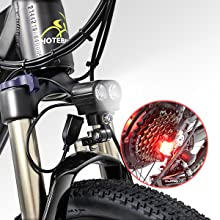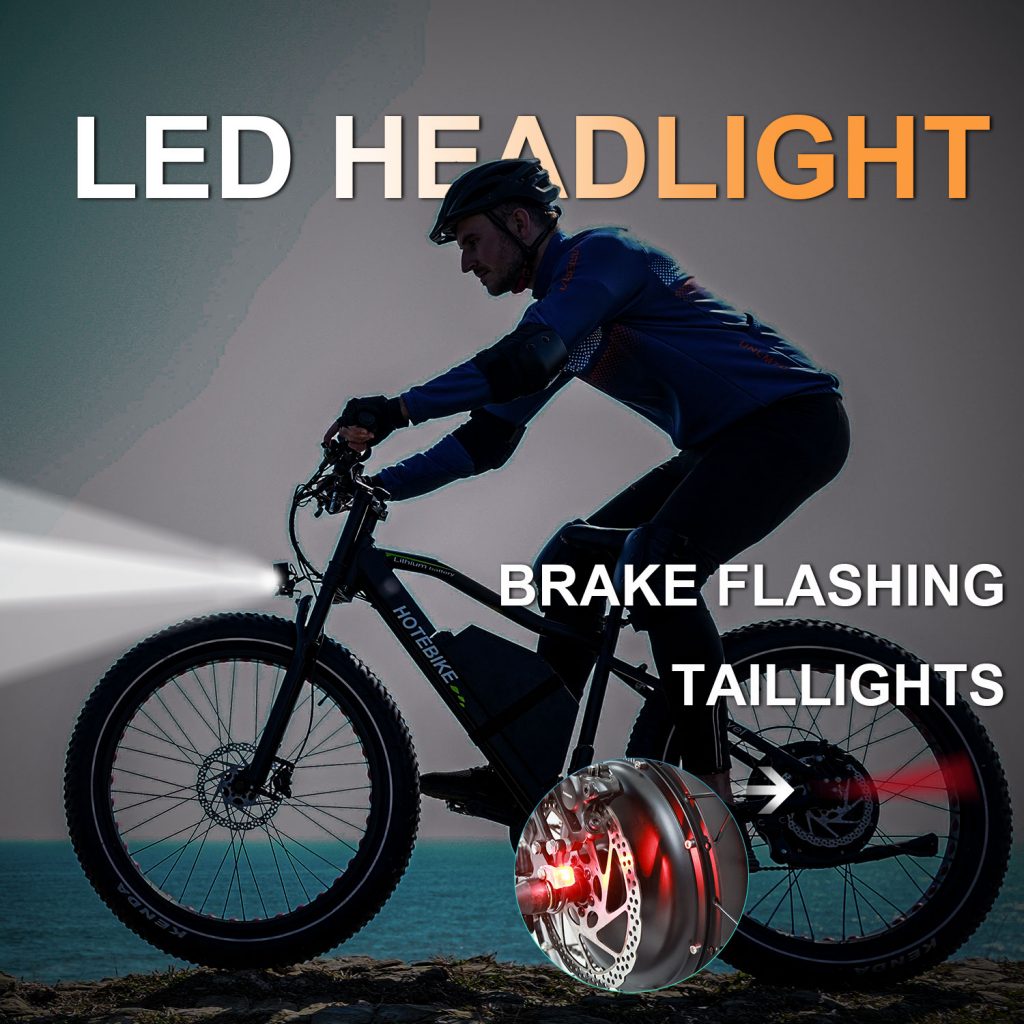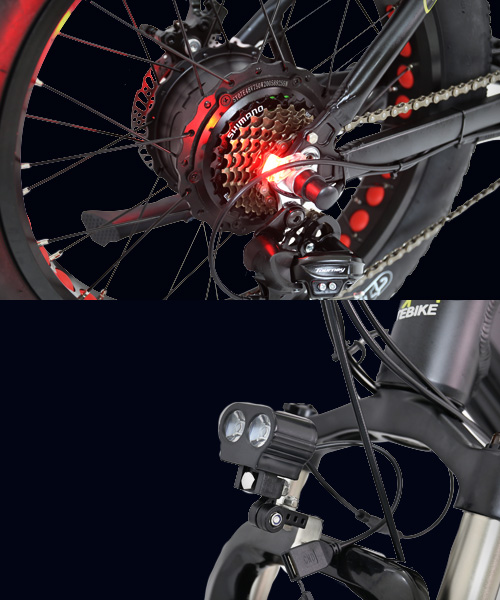Cycling at night can be a fun and exhilarating experience. The cool breeze on your face and the peaceful quiet of the roads can make for a calming ride. However, cycling at night also presents its own unique challenges and potential dangers. Reduced visibility and the increased risk of accidents mean that cyclists need to take extra precautions when riding after dark. In this article, we’ll go over some important dos and don’ts of cycling at night to help you stay safe and enjoy your ride to the fullest. Whether you’re a seasoned cyclist or new to night riding, these tips will help you make the most of your nighttime adventures on two wheels.
Riding at night can be more challenging than during the day, as visibility is reduced and the environment can be more unpredictable. Here are some things to look out for when riding at night:
Visibility: Make sure you have adequate lighting on your bike, including front and rear lights, and wear reflective clothing to increase your visibility to other road users.
The importance of electric bikes being equipped with front lights and rear taillights.
It is essential for electric bikes to be equipped with front lights and rear taillights for a number of reasons:
Safety: The primary reason for having lights on your electric bike is safety. Lights help you to see where you are going and help others to see you. This is especially important when riding in low light conditions or at night, when visibility is reduced.
Compliance with the law: In many countries, it is a legal requirement to have lights on your bike when riding on public roads. Failure to comply with this requirement can result in fines or other penalties.
Avoid accidents: Lights make you more visible to other road users, which can help to prevent accidents. When you have lights on your electric bike, other road users are more likely to see you and take appropriate action.

Peace of mind: Knowing that you are visible to others and can see where you are going can give you peace of mind and make your ride more enjoyable.
Overall, having front lights and rear taillights on your electric bike is essential for your safety and the safety of others on the road. It is important to ensure that your lights are working properly and are always turned on when riding in low light conditions or at night.
There are several effective ways to improve the visibility and safety of your bike while riding. One of the most important steps is to use bright and reliable headlights and taillights. With HOTEBIKE Bikes, you can rest assured that all models come standard with water-resistant and powerful headlights that are powered by the bike’s battery. With an output of up to 2,000 lumens, these headlights illuminate the road ahead, making it easy to spot potential hazards and obstacles. Additionally, the bright headlights make you more visible to other motorists from a distance, ensuring that they are aware of your presence.
All HOTEBIKE Bikes also come standard with taillights, and certain models even feature integrated brake lights and lighted turn signals. This additional feature helps to keep you even safer while riding, especially in low-light conditions. If your bike does not come with a headlight, you can easily attach an LED bike light that is rechargeable and powerful enough to light up your riding route.
Another accessory that can greatly enhance your safety while riding at night is a left-side handlebar mirror. This shatterproof and fully adjustable mirror from HOTEBIKE will not cause any glare, making it easy to see what’s behind you without having to constantly turn your head. This helps to reduce the likelihood of riding accidents and makes your ride much safer overall. With these enhancements, you can ride your bike confidently and safely, even in low-light conditions or at night.


Road conditions: The road surface can be more difficult to see at night, so be aware of any potholes, gravel, or other hazards that may be present.
Other road users: Keep an eye out for other vehicles, cyclists, and pedestrians, who may be harder to see at night. Assume that others may not see you and take extra care when approaching intersections or turning.
Speed: Reduce your speed and give yourself more time to react to unexpected obstacles or hazards.
First, increased risk of accidents: Riding an e-bike at high speeds increases the risk of accidents. The faster you ride, the less time you have to react to unexpected obstacles or hazards.
Second, more severe injuries: In the event of an accident, riding at higher speeds increases the risk of sustaining more severe injuries. The force of impact is greater, and the risk of head injuries is increased.
Third, reduced control: Riding an e-bike at high speeds can reduce your control over the bike. Turning and braking become more difficult, and you may be more likely to lose control and crash.Forth, Greater risk to other road users: Riding at high speeds also increases the risk to other road users. You may be less visible and less able to react to the movements of other road users, increasing the likelihood of accidents.
Weather: Be aware of weather conditions, such as rain or fog, which can further reduce visibility and make riding more challenging.
Rain and wet conditions: Riding an e-bike in rainy or wet conditions can reduce the traction of the bike’s tires on the road, making it more difficult to maintain control. Wet conditions can also affect visibility, making it harder to see the road and other road users.
Wind: Strong winds can affect the stability of the e-bike, making it harder to maintain balance and control. Windy conditions can also increase the risk of collisions with other road users, especially if the wind is gusty.
Extreme temperatures: Extreme heat or cold can affect the rider’s ability to concentrate and react quickly, which can increase the risk of accidents. In addition, extremely cold weather can cause the bike’s battery to lose its charge more quickly, reducing the range of the bike.
Snow and ice: Riding an e-bike on snow or ice can be extremely hazardous, as the bike may have very little traction on these surfaces. Snow and ice can also reduce visibility and make it harder to see other road users.
Fatigue: Riding at night can be more tiring than during the day, so be aware of your own fatigue levels and take breaks if needed.
Overall, it’s important to be vigilant and take extra precautions when riding at night to ensure your safety and the safety of others on the road.
 hotebike
hotebike